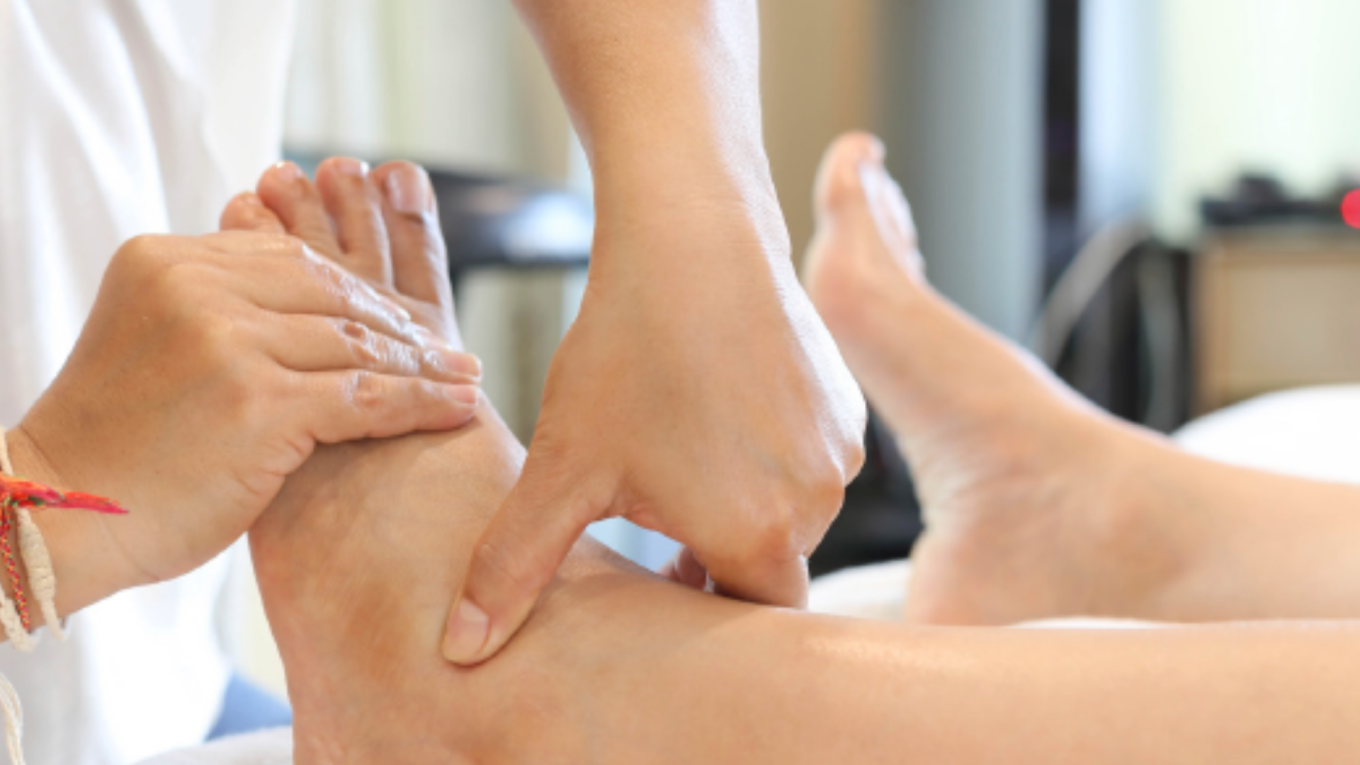
Podiatrist
Podiatrists diagnose and treat problems affecting the feet and legs, helping people manage pain, recover from injury and stay mobile after illness or long-term conditions.

On this page
Introduction to the role
Podiatrists work with people who have problems affecting their feet and lower legs, helping them manage pain, recover from injury and improve mobility. The role can involve treating a wide range of patients, from children with walking difficulties to adults living with long-term health conditions. You’ll often work alongside other healthcare professionals, such as physiotherapists, dietitians, GPs and nurses, to provide complete care.
About the role
What does a podiatrist do?
As a podiatrist, you’ll help patients with many different needs. You may support children experiencing lower limb pain or difficulties with movement, treat people with diabetes who have circulation problems and may be at risk of amputation, or care for athletes and dancers recovering from injury caused by repeated strain.
You could work in hospitals, community clinics or visit patients in their homes, adapting your approach to suit each setting and each person’s needs.
What are the pay and conditions like?
If you work as a podiatrist in the NHS, you’ll usually have a 37.5 hour working week, which may include some evenings or weekends.
Most podiatrists start at band 5 on the Agenda for Change pay scale. You’ll also receive at least 27 days of annual leave plus bank holidays, along with access to the NHS pension scheme and a range of staff discounts.
Where podiatry can take you
Once you have qualified as a podiatrist, there are a range of career paths you can follow.
You could:
- specialise in areas such as sports injuries, diabetes or working with children
- move into teaching or management within podiatry services, leading a team and managing budgets
- continue your training to become a podiatric surgeon
You’ll have regular professional development opportunities to support your career goals, and you may choose to join The Royal College of Podiatry to access further training, courses, conferences and seminars.
Life as a podiatrist
Life as a podiatrist
Person specification
Is podiatry right for you?
Podiatrists work closely with patients to improve their mobility and comfort, so being able to communicate clearly and put people at ease is essential. You’ll often be working with patients who may feel self-conscious or in pain, so empathy and professionalism are important throughout your care.
Ask yourself:
- Can I make people feel comfortable in a clinical setting?
- Am I confident working with patients who have a variety of needs?
Do you have the skills to succeed?
You’ll need to be comfortable examining and treating feet and legs, and able to adapt your approach to suit different patients. The role can involve working independently as well as alongside a wider healthcare team, so being flexible and collaborative is important.
Ask yourself:
- Am I happy working on my own and with others?
- Can I adapt to different working environments and patient needs?
Find a course with UCAS
Want to explore the next step in traditional degree routes into the NHS? Explore courses related to podiatry with UCAS today.
Entry requirements and training
The most common route into podiatry is by completing an approved undergraduate or master’s degree in podiatry. Full-time courses usually take three years to complete, while part-time study can take around four years. Once you have successfully completed your degree, you must register with the Health and Care Professions Council before you can begin practising.
A degree apprenticeship in podiatry is also an option. This route allows you to train while working and is offered by some healthcare providers in partnership with universities.
Most universities ask for five GCSEs at grades 4-9 (A-C), including English language, maths and science, along with three A levels or equivalent, usually including a biological science. Equivalent qualifications may include a BTEC, HND or HNC in a relevant subject, a T Level, NVQ, science-based access course, equivalent Scottish or Irish qualifications, or a previous degree or professional qualification in a related field.
Entry requirements can vary between universities, so it’s important to check directly with the provider before applying.
Find out more about routes into the NHS with UCAS.
Work experience
Applying for a course or apprenticeship as a podiatrist is going to be competitive. If you're seriously considering it, it is a great idea to try and gain some prior work experience to strengthen your application. Visit NHS England to find out more about gaining work experience for careers in the NHS.
Financial help at university
You could receive at least £5,000 a year to help fund your studies while at university in England. Your personal circumstances and the course you choose may mean you could receive more. And the good news? You'll never have to pay it back.
Explore NHS Careers
There are over 350 different NHS careers and everyone makes a difference every day. Whether you’re still in education or thinking about changing careers, you'll get the information you need.